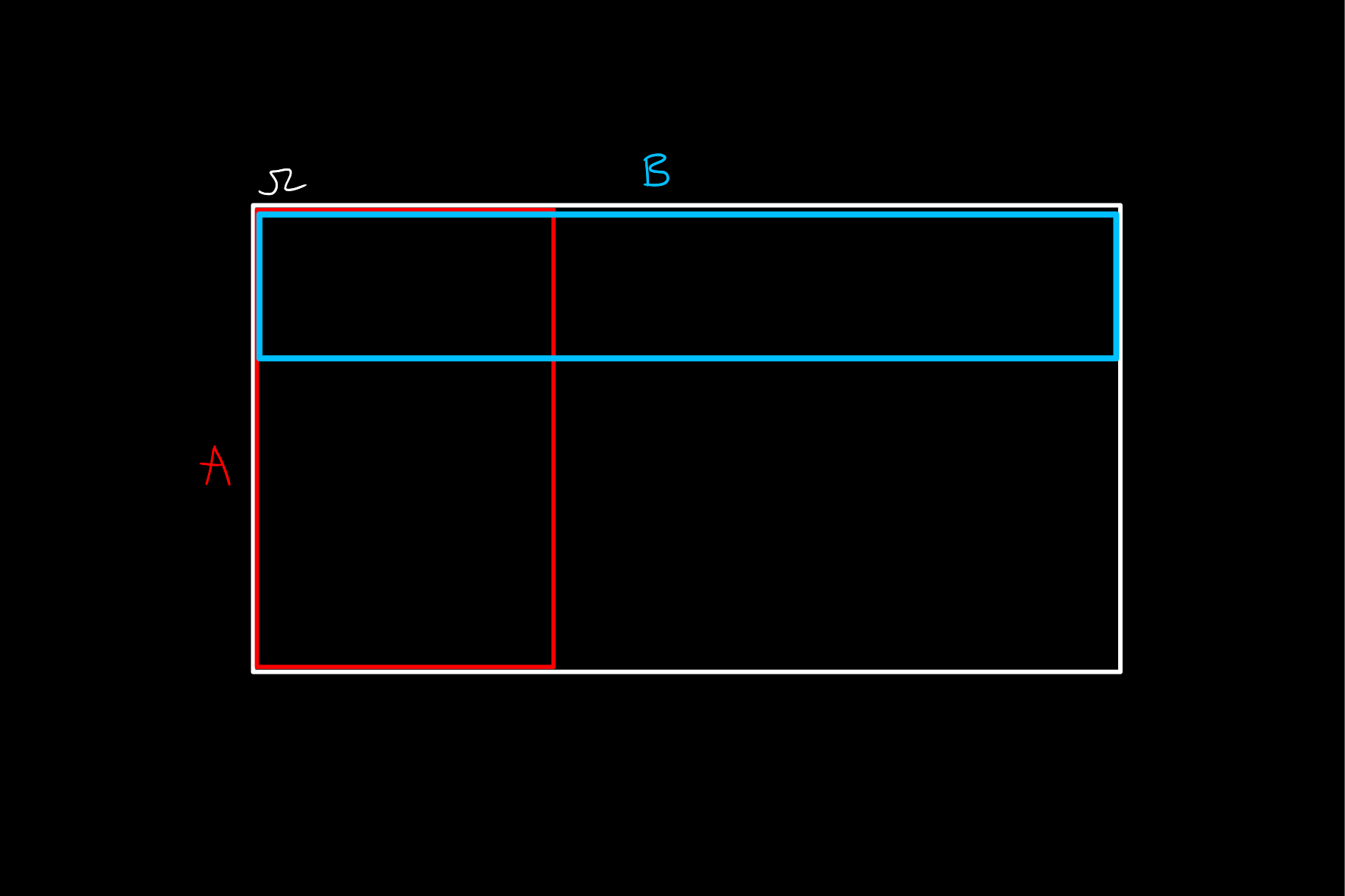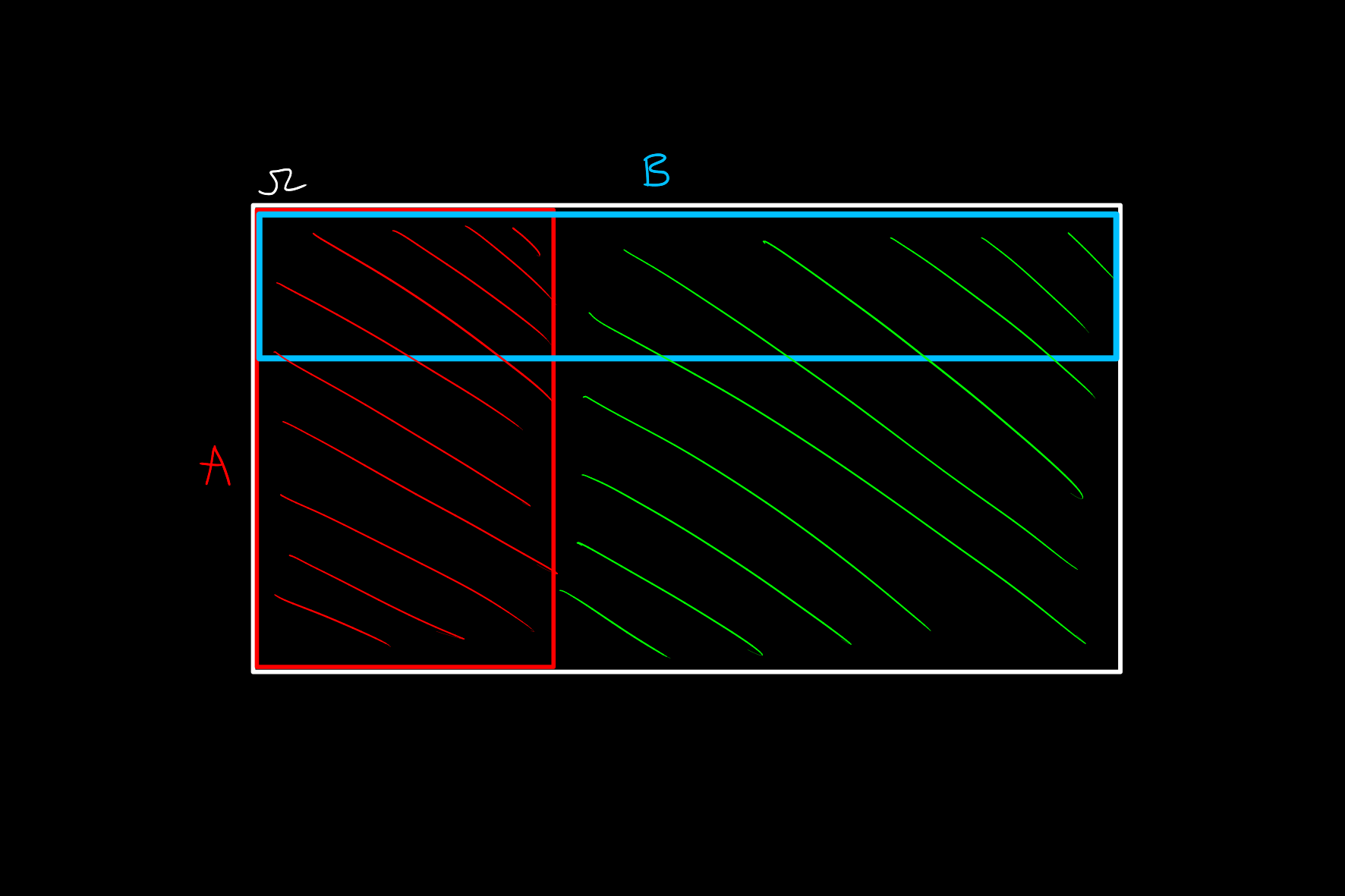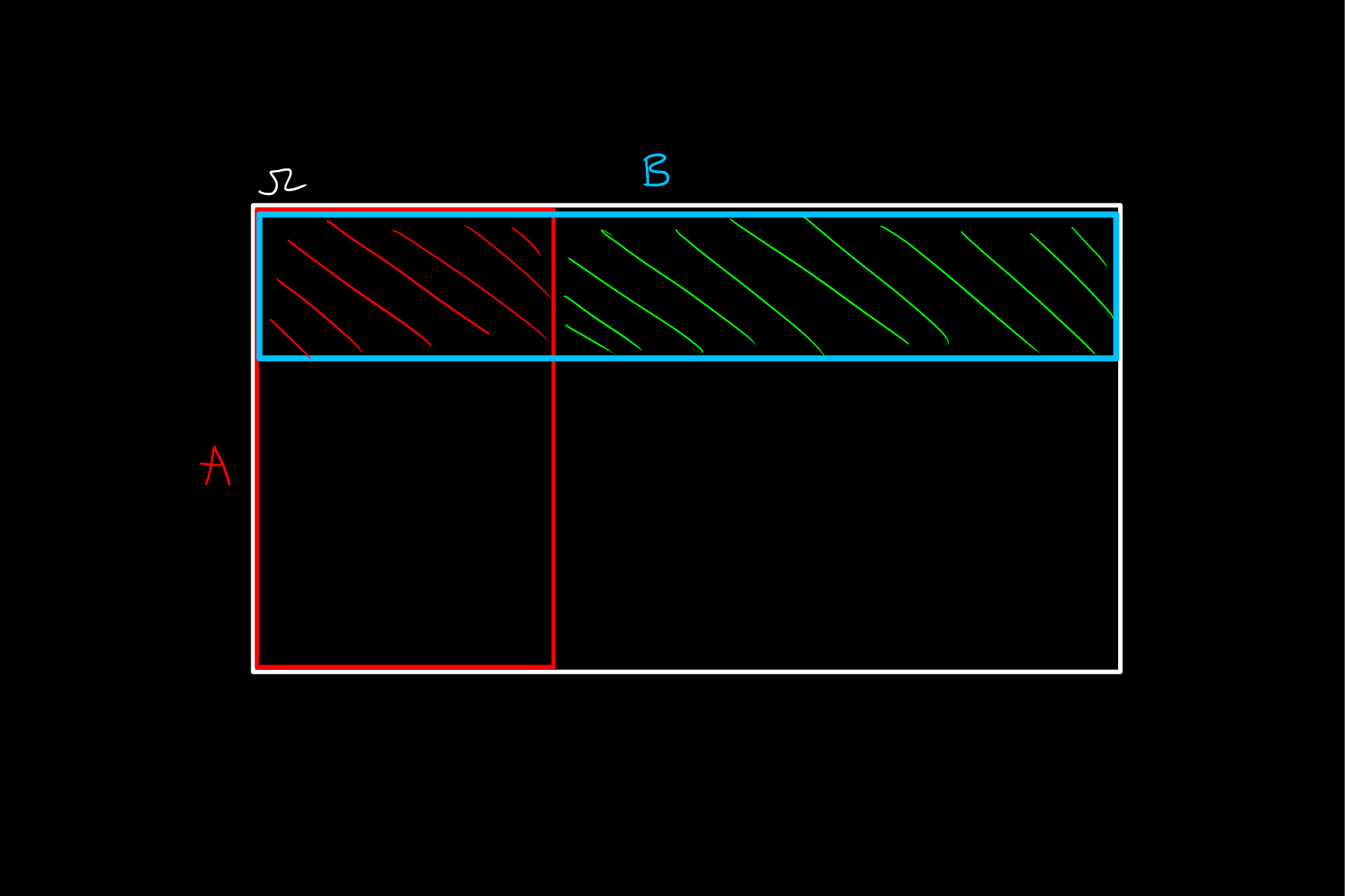Independent and Dependent Events
Two events in a probability space are called independent if:
From the multiplicative rule of probability, this can equivalently be expressed as:
which gives an intuitive notion of what independence means, being that the probability of
The notion of independence and dependence is a key distinguishing factor between working with probabilities and measure theory in general.
Viewing the probabilities as areas within the overall probability space, the notion of independence means that the proportion of the whole space taken up by

where

but the portion of it overlapping with

Drawing these probabilities as full width rectangles on perpendicular sides of the rectangle always yields independent events.